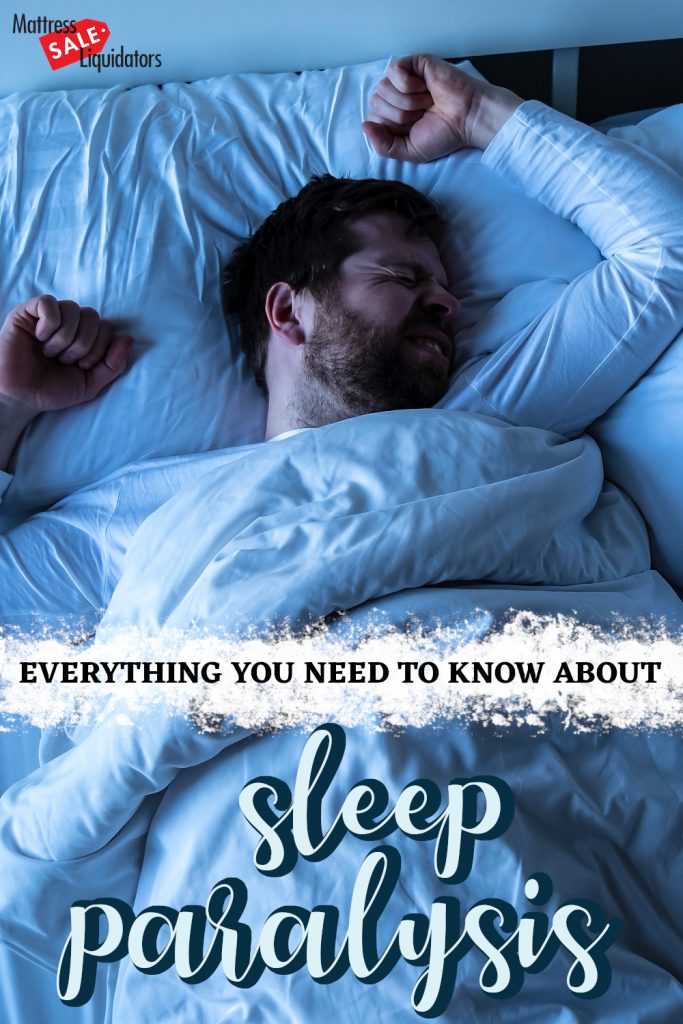
What is Sleep Paralysis?
Imagine this scenario.
After a long day at work, you’re finally tucked into your comfortable mattress in your Orange County home itching for a good eight hours of sleep. You close your eyes to try and sleep, but sleep never comes! You then decide to head to the kitchen for a glass of water before realizing you can’t, as your body is completely immobile and unyielding.
This is sleep paralysis. It is a phase where you’re both asleep and awake at the same time. It can be a scary experience for many people as you not only have a disconcerting lack of control over your body, but also hallucinations. It can last from a few seconds to a few minutes.
What are the Kinds of Sleep Paralysis?
According to WebMD, there are two kinds of sleep paralysis—hypnagogic and hypnopompic.
Hypnagogic sleep paralysis happens between wakefulness and sleep. As we doze off, our brain waves start chilling out in preparation for sleep. Here, you’ll find yourself flitting between the real world and the dream world, or sometimes even both—if you’re aware of all these changes while sleeping, pretty soon you’ll realize that while your mind is awake, your body isn’t anymore. You’re unable to move or talk, and you’ll start having visual and auditory hallucinations too.
Hypnopompic sleep paralysis, on the other hand, happens between sleep and wakefulness. When we sleep, we alternate between non-rapid and rapid eye movement (NREM and REM). NREM is when our body restores energy, while REM is when we have dreams. While all this is happening in our brain, the rest of our body is “turned off” to prevent movement, which is why many of us don’t run around in real life while we’re running around in dreamland.
As we wake up, our brain starts sending signals to the rest of our body that had been dormant and telling them to turn things on again. However, sometimes the signal falls through, and our minds wake up before our bodies can. Like in hypnagogic sleep paralysis, you can’t move nor speak, and you’ll probably have hallucinations too.
What are the Causes of Sleep Paralysis?
While sleep paralysis is a very common problem in many cultures, the direct cause of it is unknown. Explanations range from poor sleeping habits to mental health problems to evil spirits to bad luck. However, a lot of scientists do agree that lack of sleep plays a huge factor in sleep paralysis.
When Does Sleep Paralysis Become a Problem?
Sleep paralysis is innocuous for the most part, but if it becomes a regular occurrence, then that might be symptoms of something more serious.
For one thing, sleep paralysis can be so incredibly scary that people who have them frequently dread going to sleep. They might have heightened anxiety and end up being tired most of the day yet wide awake at night.
It can also be a sign of narcolepsy. This is a disorder that causes people to be perpetually tired during the day. They can’t resist falling asleep wherever they may be, and this in turn can affect how they live their daily lives.
In either case, it would be prudent to contact your healthcare provider or a sleep specialist to help you get over your sleeping problem.
How Can I Get Rid of Sleep Paralysis?
The best way to get rid of sleep paralysis for good is to practice proper sleeping habits. Always make sure to get six to eight hours of uninterrupted sleep, and try to fall asleep and wake up at the same time each day. Having a set schedule will better help your body differentiate between sleep and wakefulness.
You should also be in a relaxing and comfortable environment that’s conducive to sleep. You should have a soft Orange County mattress, a darkened room, and no distractions like music and bright lights. It might be hard to do this if you’re in an uncontrolled environment, so try and make do with an eye mask and some earplugs.
Conclusion
Whenever you get hit with sleep paralysis, it’s important to remain calm and just wait for your body to wake up. It’s also important to learn from your mistakes—research has shown that sleep paralysis is linked with poor sleeping habits that you can easily remedy.
You need to have a good amount of uninterrupted rest each night. This means sleeping in a proper bed with a proper mattress, turning off your phone and TV, and refraining from staying up too late. Never underestimate the power of a good night’s sleep!
